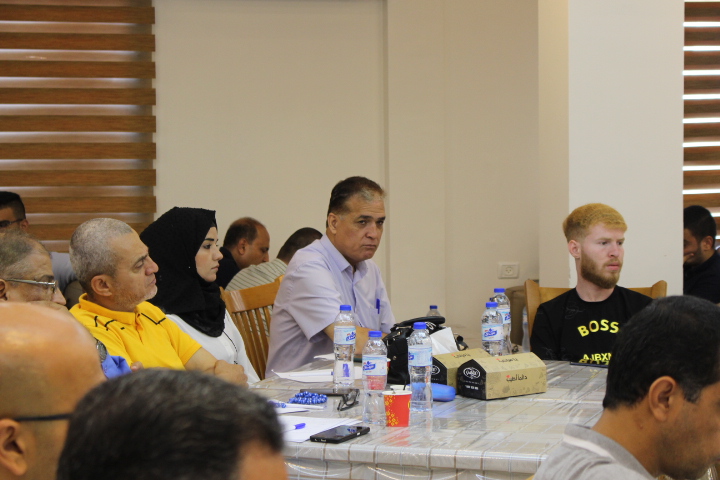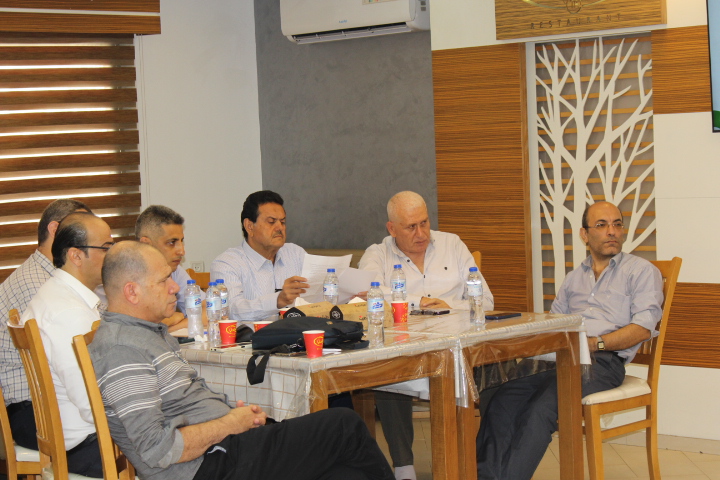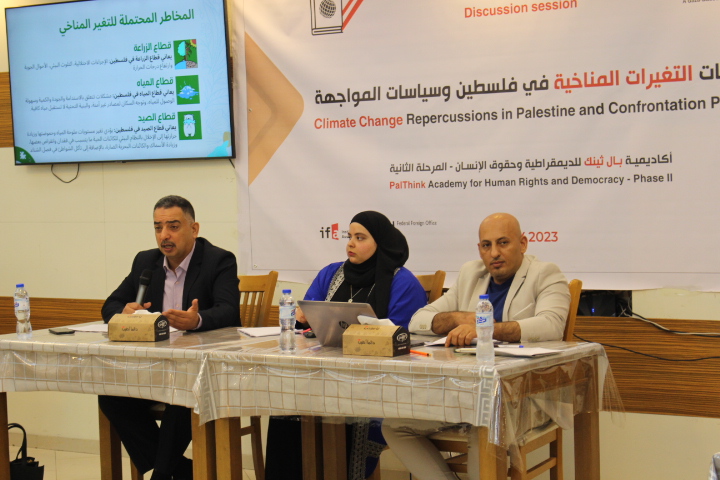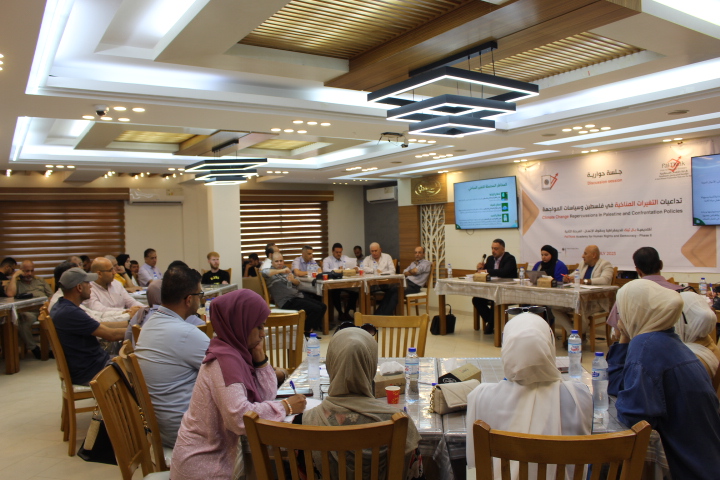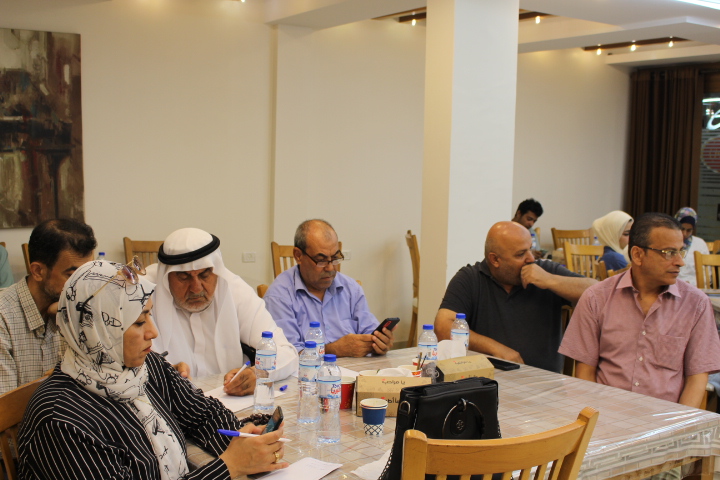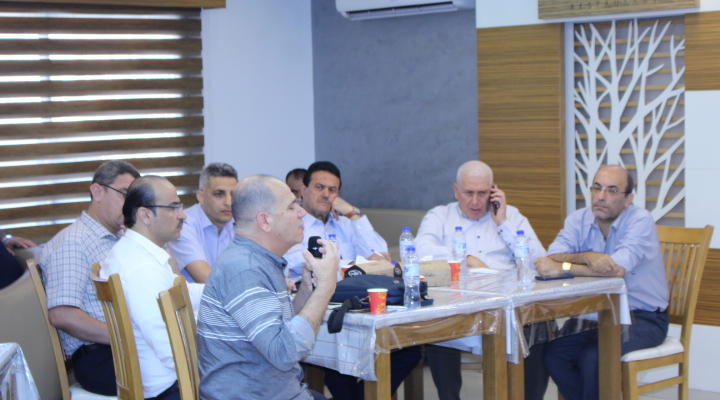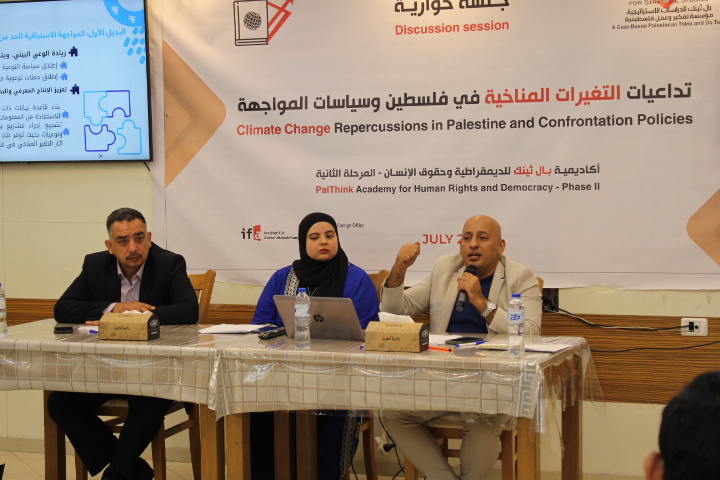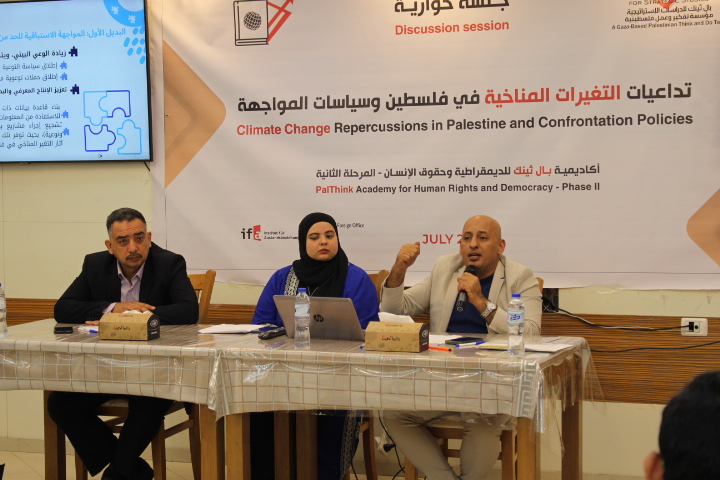
PalThink for Strategic Studies has convened a dialogue session to discuss a policy paper discussing “Climate Change Repercussions in Palestine and Confrontation Policies,” prepared by researchers Omar Shaban, Yahya Kaoud, and Mahmoud Issa.
The session was part of the second phase of the “PalThink Academy for Democracy and Human Rights” project, supported by the German Federal Foreign Office’s funds by ifa’s Funding Programme zivik.
Bringing together a diverse group of professionals from relevant ministries, environmental experts, and members of the PalThink Academy, the dialogue session aimed to foster a comprehensive understanding of the challenges posed by climate change and explore effective mitigation strategies.
Nour Abed, a distinguished member of the Academy, opened the session by extending a warm welcome to the broad range of participants. She underscored the significance of studying and comprehending climate change’s impact on Palestinian society and its various sectors.
During the session, Dr. Mahmoud Issa, an esteemed researcher specializing in economics and development, presented a thought-provoking analysis of the concrete effects of climate change, which have become an undeniable reality in our modern world.
He highlighted how vulnerable countries like Palestine, lacking the resources for flexible responses and adaptation, remain disproportionately affected by the far-reaching consequences of climate change.
Issa shed light on the potential risks that intertwine with diverse economic sectors in Palestine, including water, agriculture, fishing, energy, and health. Additionally, he emphasized the existence of challenges and obstacles that further burden Palestine’s ability to effectively adapt to climate change and manage its impact.
The Israeli occupation, division, administrative hurdles, and technical constraints have collectively weakened national institutions and local authorities, impeding the development of robust strategies to confront climate-related disasters. Notably, limited access to Area C in the West Bank hampers efforts to monitor the environmental effects of climate change.
In light of these findings, Yahya Qaoud, a distinguished researcher specializing in political science and public policies, presented viable alternatives and political solutions outlined in the policy paper.
Qaoud’s proposed proactive measures and policies emphasized the significance of fostering environmental awareness, promoting sustainable practices, and unifying governmental policies in Gaza and the West Bank. Furthermore, he stressed the importance of enhancing knowledge production and research on climate change, providing the necessary foundation for evidence-based decision-making.
He also highlighted the urgent need for responsive measures and policies to address the immediate impact of climate change on various productive sectors in Palestine. To this end, he put forth several recommendations, including increasing energy efficiency, maximizing economic opportunities for climate adaptation, and advocating for the use of green fertilizers.
The dialogue session fostered interactive discussions among the participants, encompassing a wide array of topics covered in the policy paper. Environmental experts deliberated on the multifaceted factors and challenges influencing the climate environment in Palestine. Their engaging discourse revolved around the proposed policy alternatives and the crucial role of decision-makers in implementing them effectively.
PalThink plans to publish the comprehensive policy paper, originally presented in Arabic and English, making its valuable insights accessible to a wider audience.



 Home
Home Literature
Literature Studies
Studies Reports
Reports Book
Book International Conventions
International Conventions Links
Links Academy News
Academy News Opportunities
Opportunities Networking
Networking Your opinion
Your opinion